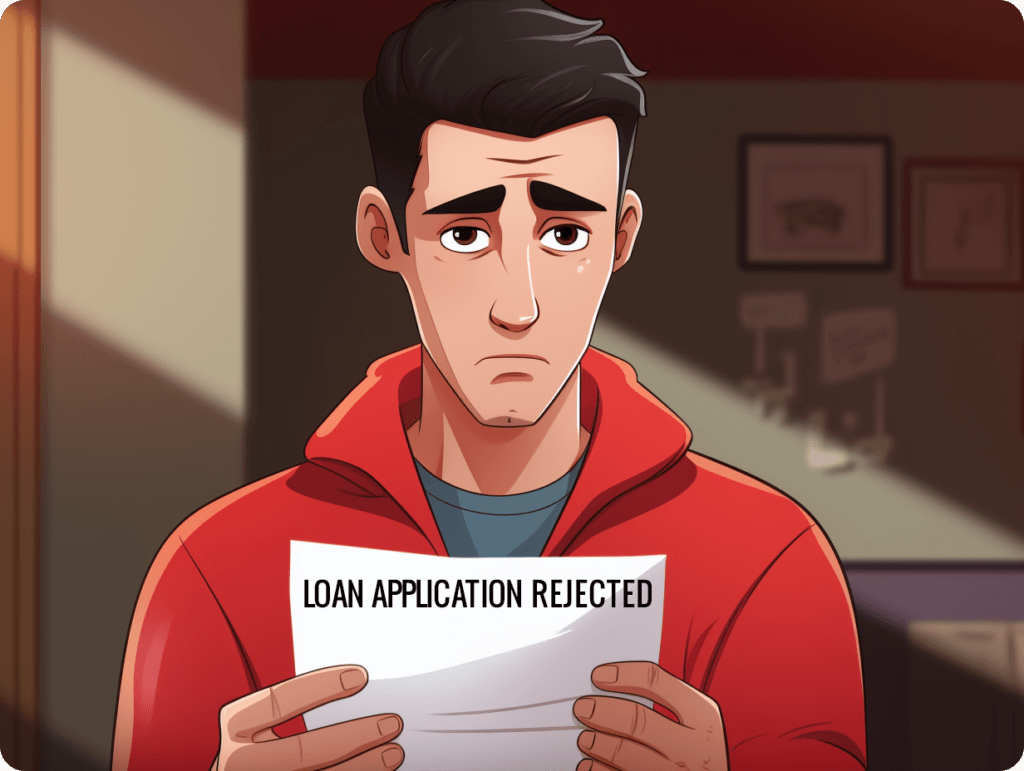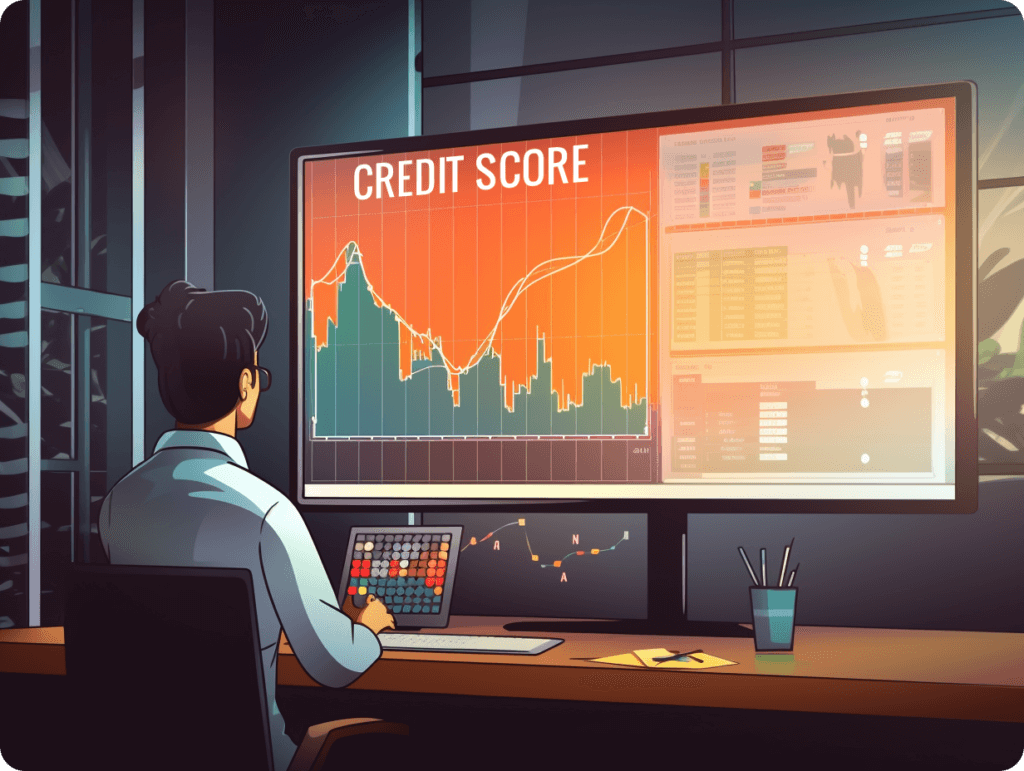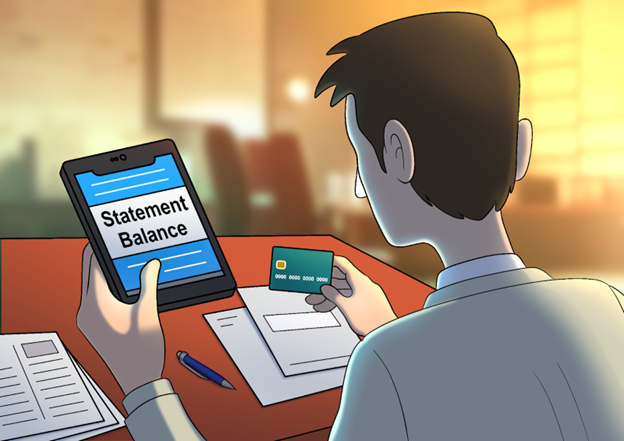- Blogs
- /
- What is a Poor Credit Score and 5 Ways it Impacts Your Life
What is a Poor Credit Score and 5 Ways it Impacts Your Life

Summary
Your credit score is a number that represents your creditworthiness. It’s based primarily on your payment history and the total amount you owe.
Big lenders like banks, credit card companies, and mortgage lenders use your credit score to determine the risk of lending money or extending credit to you.
A poor credit score falls between 300 and 669. It can hurt your financial situation, making it difficult to secure loans with the lowest interest rates.
Today, we’ll dive deep into ‘What is a poor credit score?’ This way, you can fully understand how the FICO and Vantage scores work. You’ll learn about their implications on your financial health. We’ll also show you how to grow your credit score quickly.
Key Takeaways
- A poor credit score is generally below 600.
- Bad credit scores can negatively impact your financial stability. They make it difficult to get approved for low-interest loans and credit cards.
- Bad credit can be repaired over time, even if it results from a bankruptcy filing.
- The key to improving your credit score is consistently paying off debts early and taking care of high-interest loans.
- Your payment history, credit utilization, and the length of your credit history all affect your credit score.
What is a Poor Credit Score?
According to FICO, a poor credit score ranges from 300 to 579, while Vantage says a poor credit score ranges from 300 to 600.
A low score signifies to lenders that you’re at a higher lending risk due to late payments, excessive debt, or bankruptcy. This information is crucial in helping lenders gauge your likelihood of making timely repayments.
People with bad credit scores often struggle to secure low-interest rates for financing. Lenders see them as high-risk borrowers.
Now, let’s look deeper into how FICO and Vantage scores work.
Here’s How FICO and Vantage Credit Scores Work

Two standard scoring models, the FICO and Vantage scoring models, determine your credit score.
Let’s see how the FICO model works.
How FICO Scores Work
FICO scores were developed by the Fair Isaac Corporation. The company specializes in creating financial solutions and credit reports.
So, how are FICO scores calculated? First, calculating FICO scores involves specific analytics algorithms that Fair Isaac Corporation (FICO) developed.
These algorithms consider several essential factors. These include your payment history (35%), amounts owed (30%), length of credit history (15%), new credit (10%), and types of credit used (10%). These factors help FICO measure your financial behavior and responsibility.
For example, having a consistent record of making timely payments indicates your reliability and trustworthiness in managing debts. On the other hand, having a lot of debt suggests financial strain or overextension.
Also, it’s worth noting that the length of your credit history provides insight into your experience handling different types of credit over time.
Understanding how these factors impact your FICO score can help you make informed decisions about your financial habits. It can also help you improve your overall credit standing.
FICO Score Range
FICO’s credit scores range from 300 to 850 and can be further broken down into five groups.
- 300 – 579: This poor FICO score shows lenders you’re a high-risk borrower and cannot manage credit responsibly.
Almost every lender will reject your application for a loan because of your high-risk nature.
- 580 – 669: This fair FICO score shows lenders that you may potentially default on your credit.
Some lenders may offer you loans with high interest rates. You should repair your credit before seeking loans.
- 670 – 739: This good FICO score shows you’re reliable in managing credit without defaulting.
Lenders will accept your loan applications, but you may struggle to get reasonable interest rates.
- 740 – 799: This very good FICO score marks you as very reliable in managing credit. This score puts you in a position to enjoy all of the best interest rates on loans and credit cards.
- 800 – 850: This excellent FICO score sets you apart as the ideal customer for lenders. With this score, you’ll enjoy the best interest rates on every offer.
FICO Scoring Model
FICO often updates versions of its scoring models to enhance their predictive accuracy. These updates usually include adjustments to how certain factors are weighted. They might also add new considerations based on changes in the credit industry.
These new FICO models are designed to capture shifts in consumer behavior. Let’s say there’s a change in economic conditions and how people use credit or manage debt. FICO takes a look at this and adjusts its models to ensure they remain relevant and effective in assessing credit risk.
This means FICO models reflect the current credit environment. They provide accurate predictions of creditworthiness.
But that’s not all. Lenders may use specific versions of the FICO score. They may even develop custom models tailored to their lending practices.
This customization allows lenders to fine-tune risk assessments based on their unique criteria and business objectives.
How Vantage Scores Work
Besides the FICO score model, another widely used scoring system is the Vantage scoring model.
The three major credit bureaus in 2006 developed this scoring model collaboratively. This model also evaluates factors similar to FICO but may weigh them differently.
Like the FICO score, it ranges from 300 to 850 points. However, its interpretation may vary slightly due to the differing weightings assigned to each factor.
For example:
- A person with a limited credit history might have a higher VantageScore than their FICO score.
- Also, someone who recently opened multiple lines of new credit could see more significant score differences. This is because the models give different weightings to recent credits.
Understanding these nuances can give you more profound insights into how different aspects influence their overall credit health across various scoring systems.
Vantage Score Range
- 300 – 499: Having a very poor Vantage score signals you’re having deep challenges managing credit responsibly, making you a higher risk to lenders.
Getting a loan will be challenging because lenders perceive folks with very poor credit scores as high-risk borrowers.
- 500 – 600: This poor Vantage score tells lenders you’re having challenges consistently paying your debt on time.
- 601 – 660: If you’re in the fair Vantage score range, your risk of defaulting is a concern to lenders.
And though some lenders will approve your loan applications, they’ll often come with high-interest rates.
- 661 – 780: A good Vantage score showcases your reliability in managing credit without defaults.
- 781 – 850: This is an excellent Vantage score that guarantees you’ll get approved when applying for credit card loans and mortgages.
This score puts you at the top regarding enjoying the lowest interest rates.
Here’s How Bad Credit Affects You

1. It Creates Mortgage Challenges
A poor credit score can make getting a mortgage loan challenging. Lenders ask for larger down payments or charge higher interest rates for folks with poor credit scores.
Someone with a bad credit score might need to put down over 20% instead of the standard 5-7%. This means needing more money upfront.
That’s why improving your credit score before applying for a mortgage is crucial. It can help you secure better terms, like lower interest rates and smaller down payments.
Lenders want to see that you’re reliable in paying back what you borrow. If they see proof through an improved credit score, they’ll be more willing to offer favorable terms for your mortgage.
2. It Makes Loan Accessibility Difficult
Poor credit scores can limit access to loans or result in higher interest rates on borrowed money. Some lenders specialize in providing loans to individuals with poor credit, but usually at higher costs than those offered to people with good credit scores.
Improving your credit score increases your chances of accessing loans and reduces borrowing costs significantly. This means saving money on car and personal loans because lenders will trust you more due to your improved financial track record.
In essence, bad credit makes it harder and costlier to borrow money when needed, like buying a home or dealing with unexpected expenses.
3. It Increases Insurance Premiums
A bad credit score can also impact your insurance premiums. Insurance companies often use credit scores to assess risk and determine the cost of premiums.
People with lower credit scores may face higher insurance premiums, affecting the overall cost of coverage for auto, homeowners, or renters insurance. Improving your credit score can lead to huge potential savings on insurance expenses.
4. It Affects Employment Opportunity
Believe it or not, your credit score can affect your employment opportunities. That’s because some employers will check your credit reports as part of the hiring process, especially for positions that involve financial responsibilities.
And yes, even though a credit check doesn’t provide a complete picture of your qualifications, a poor credit history might raise employer concerns.
Improving your credit score can boost your financial image and positively impact your job prospects.
5. Increases Demand for Security Deposits
Having a poor credit score can result in utility companies requiring a security deposit before providing services.
When applying for utilities like electricity, water, or internet, companies may view a bad credit score as an increased risk of non-payment. This means folks with poor credit scores face difficulty setting up essential services.
6. It Affects Your Rental Applications
Landlords often check credit scores as part of the rental application process. A bad credit score can make it challenging to secure a rental property. That’s because most landlords are hesitant to rent to someone with a history of late payments.
7. It Affects Your Credit Card Applications
Finally, a poor credit score significantly impacts your ability to secure credit cards with favorable terms. And it’s not a secret that folks with bad credit scores face higher interest rates, lower credit limits, or outright rejections when applying for credit cards.
So ensure you set aside time to improve your credit score because it’ll open doors to better credit card options with lower interest rates and more favorable terms.
3 Basic Steps to Improving Your Poor Credit Score
1. Pay Your Bills on Time
Rebuilding a bad credit score involves taking steps to improve it over time. Some of these steps include paying bills on time, reducing debt, and disputing any errors on your credit report.
Paying your bills on time shows that you can be responsible with money. Reducing the money you owe also helps because it shows you’re not borrowing too much.
Sometimes, mistakes in your credit report make your score look worse than it is. By checking for these errors and asking for them to be fixed, you can help improve your bad credit score.
Remember, rebuilding your credit score takes time. So, ensure you stay patient and consistent.
2. Practice Debt Management
Managing debt simply means planning how you spend your money so that you can pay back what you owe without getting into more financial trouble.
Effective debt management involves creating a budget, prioritizing payments, and reducing overall debt levels. Paying off high-interest debts first can save you a lot of money in the long run.
When managing debt with a bad credit score, paying off the most expensive debts first is essential because their cost can quickly add up if left unpaid. Also, remember that sticking to a budget can help you curb your spending.
And if you’re struggling with lots of debt, one way you can resolve it is by getting professional help from a reputable credit repair company.
Credit repair companies are excellent at identifying errors on your credit report and legally disputing them with credit bureaus.
3. Use Secured Credit Cards
Credit builder tools, like secured credit cards or loans, are one of the best ways to establish or rebuild your history. You see, these tools work by requiring the borrower to make a small deposit, which also serves as the account’s limit.
So, if you’re having trouble getting approved for regular loans or cards because of your bad credit score, you should consider using a secured credit card.
And although these tools require some extra guarantees, they show lenders that you’re working hard to improve your bad credit.
How to Maintain a Good Credit Score

1. Watch Your Spending
One of the best ways to maintain an excellent credit score is by practicing responsible credit habits. These responsible credit habits involve making timely payments, keeping your balances low, and avoiding excessive debt.
Doing this helps you build a positive credit history over time, which is crucial for maintaining a good credit score. Also, developing good financial habits like budgeting and spending within your means contributes to a healthy credit profile.
For instance, consistently staying below your credit limit and paying off the total balance on a credit card each month instead of just making minimum payments remains one of the best ways to show financial responsibility and build your credit score.
2. Avoid Too Many Hard Inquiries
A soft inquiry is when someone checks their credit report or gets preapproved for a loan. Checking your credit score online counts as a soft inquiry. It doesn’t affect your credit score at all.
On the other hand, a hard inquiry occurs when you apply for new credit, like getting a new credit card or applying for a loan. Getting a lot of hard inquiries within a short period can cause your credit score to drop significantly.
So, avoid unnecessary credit checks because that’d safeguard you from the negative impact of hard inquiries.
3. Regular Credit Report Review
Regularly reviewing your credit reports remains one of the best ways to identify any errors or discrepancies that may negatively impact your score.
Disputing inaccuracies with the credit bureaus can help correct these issues before they significantly affect the credit score.
Reviewing your report would make you more likely to become aware of any unauthorized accounts or fraudulent activities on your credit report.
This way, you can address any errors or suspicious activities and prevent potential damage to your credit standing.
Build Your Financial Stability
So, there you have it! Understanding what is a poor credit score and the factors that impact it is the first step to taking control of your financial well-being.
A poor credit score can quickly become challenging to your financial stability, but by managing your credit responsibly, avoiding new hard inquiries, and making consistent efforts to improve your score, you can pave the way for a brighter financial future.
Remember, fixing your credit is like building a house—it takes one brick at a time. Your efforts will pay off, and you’ll soon enjoy the benefits of a healthier credit score.
FAQs
What is a poor credit score?
A poor credit score typically falls below 600, indicating a higher risk for lenders. It can result in difficulty obtaining loans or credit cards and may lead to higher interest rates when approved.
How can I improve my poor credit score?
To improve your poor credit score, pay bills on time, reduce outstanding debt, and avoid new hard inquiries.
Regularly checking your credit report for errors and disputing any inaccuracies can also help improve your score over time.
What factors impact my credit score?
Several factors impact your credit score, including payment history, amounts owed, length of credit history, new credit inquiries, and types of accounts.
Understanding these factors can help you make informed decisions to maintain or improve your financial health.
How does bad credit affect me?
Bad credit can affect various aspects of your life, such as limiting access to loans or lines of credit with favorable terms.
It may also impact housing rentals or employment opportunities, as some landlords and employers check an individual’s credit history before making decisions.
Can I rebuild my credit after bankruptcy?
Yes! Rebuilding your credit after bankruptcy is possible by responsibly managing new lines of credit or loans while ensuring timely payments. Over time, demonstrating responsible financial behavior will improve your overall creditworthiness.
Our Latest Blogs:

ThisIsJohnWilliams

ThisIsJohnWilliams
FREE Strategy Session to Fix Your Credit Blogs / A statement balance is the total amount of money a...

ThisIsJohnWilliams
FREE Strategy Session to Fix Your Credit Blogs / Facebook Twitter Linkedin Instagram Share Summary Your credit score is...

ThisIsJohnWilliams
FREE Strategy Session to Fix Your Credit Blogs / Facebook Twitter Linkedin Instagram Share Summary Every savvy entrepreneur understands...

ThisIsJohnWilliams






